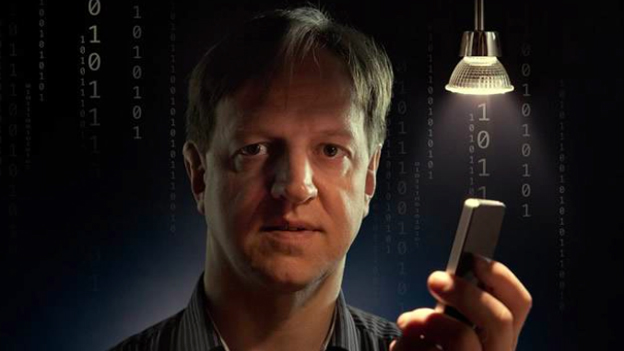Li-Fi researchers smash through 10Gbit/s data barrier using LED light bulbs
So, your broadband is 'superfast', you say?

A team of British researchers have achieved wireless data transfers at speeds in excess of 10 gigabits per second, using an advanced iteration of the emerging Li-Fi technology, it was revealed on Monday.
Li-Fi (light fidelity) is an alternative to Wi-Fi and transfers data over the visual spectrum rather than via radio waves. It uses light bulbs that flash on and off exceptionally quickly, sending binary information to a recipient.
Until now, the fastest speed on record for the tech was 3Gbit/s, but by using specially developed LED bulbs and separating the light into parallel streams, the scientists have been able to more than triple that.
To put it in context, the 10Gbit/s, achieved by the Ultra Parallel Visible Light Communications project is more 250 times faster than the superfast broadband (38mbps and above) currently in UK homes.
Unlimited and consistent
The hope is that Li-Fi could eventually be used to power a future generation of network. It is more efficient than Wi-Fi and is far more plentiful than the existing radio spectrum, meaning no capacity problems.
The researchers led by Prof Harald Haas at the University of Edinburgh also say Li-Fi could provide more consistent coverage within buildings, as long as users were in sight of the transmitters.
The light's inability to penetrate walls, while making connectivity a little more awkward, would make the networks more secure against outside intrusion, or so the theory goes.
Sign up to the TechRadar Pro newsletter to get all the top news, opinion, features and guidance your business needs to succeed!
You can delve deeper and keep tabs on the project, which also involves researchers at Oxford, Cambridge, St Andrews and Strathclyde on the group's website.
Via Independent
A technology journalist, writer and videographer of many magazines and websites including T3, Gadget Magazine and TechRadar.com. He specializes in applications for smartphones, tablets and handheld devices, with bylines also at The Guardian, WIRED, Trusted Reviews and Wareable. Chris is also the podcast host for The Liverpool Way. As well as tech and football, Chris is a pop-punk fan and enjoys the art of wrasslin'.
